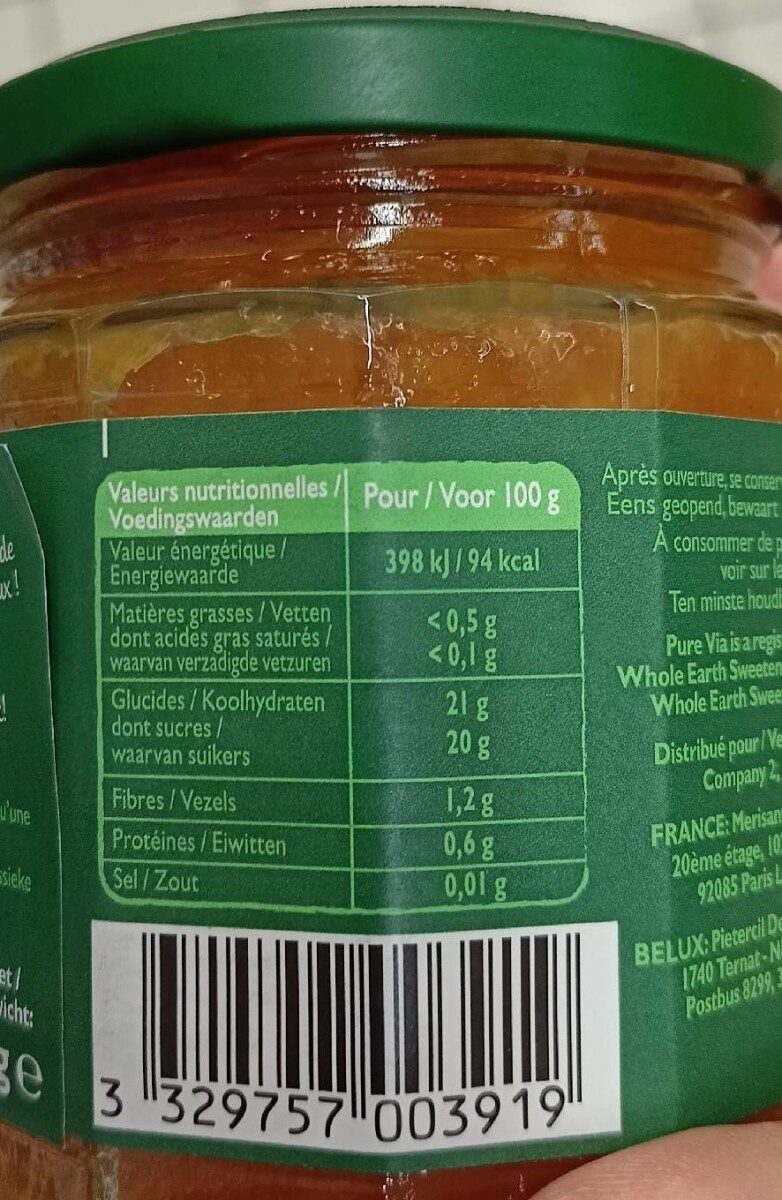Confiture d'abricot - Pure Via - 300 g
This product page is not complete. You can help to complete it by editing it and adding more data from the photos we have, or by taking more photos using the app for Android or iPhone/iPad. Thank you!
×
Barcode: 3329757003919 (EAN / EAN-13)
Quantity: 300 g
Packaging: Metal, Glass, Jar, Lid
Brands: Pure Via
Categories: Plant-based foods and beverages, Plant-based foods, Fruits and vegetables based foods, Breakfasts, Spreads, Fruits based foods, Plant-based spreads, Sweet spreads, Fruit and vegetable preserves, Jams, Apricot jams
Labels, certifications, awards: Low or no sugar, Low sugar, Reduced sugar, 40% less sugar
Origin of ingredients: France
Manufacturing or processing places: France
Stores: Carrefour Market, E.leclerc, Carrefour
Countries where sold: France
Matching with your preferences
Environment
Carbon footprint
Packaging
Transportation
Report a problem
Data sources
Product added on by kiliweb
Last edit of product page on by roboto-app.
Product page also edited by dorado-jerome, ecoscore-impact-estimator, minouche121, openfoodfacts-contributors, packbot, quentinbrd, sebleouf, yuka.C-xwYdGgR8YqE8LC9rA7h2PqFN27Ce9zKVkTog, yuka.UZ8aJYWpO-4nRMD2z7Ns4SXgCeT8LO5iAS4Iog, yuka.VbVgAuKGGcwrBMPVjIsy3Gm4LPy9KfVXIVtTow, yuka.VjVzaUYvZ0U5dklZcWZRazhFTDdwdjl5bjV1MmUyeW1OOHhCSUE9PQ, yuka.VqBnHPXVIMY4EcjU-I8M0Rq_RcP8XKBEIkYXoQ, yuka.Vzc0Qk42bzltTkFobTlzZzhrenEyOUl2Mzdpd2RrYVhkY2dKSWc9PQ, yuka.ZTQwOExZRXJnTlkzZ013Y294YlNwZE5zdzZDemRrenRFT01BSWc9PQ, yuka.sY2b0xO6T85zoF3NwEKvlhNAb4TsriLtHAPtg3KZmPCfFKT2SopSy63aHqo, yuka.sY2b0xO6T85zoF3NwEKvlkV3dvvTjDfWHSTmnkeVnPCxdIzpf_NLz4SmPKs, yuka.sY2b0xO6T85zoF3NwEKvlklpXtjxpx3LJkTTvWvb-4veCa2yc8t34o74Gas.










